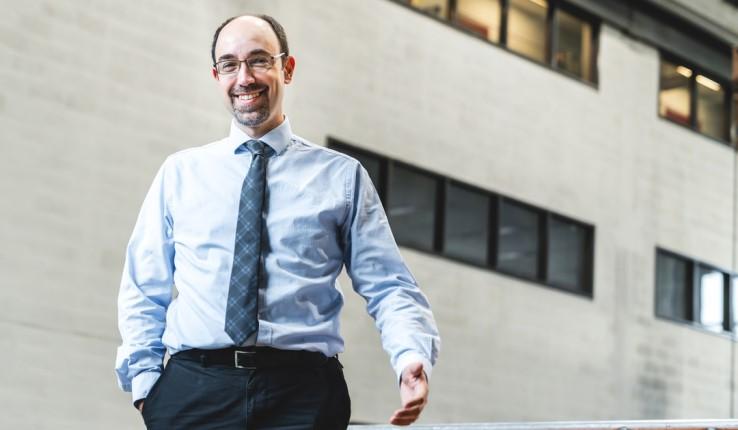Some entrepreneurs plan to internationalize from the earliest stages of business development, adopting a proactive decision-making approach to identifying opportunities for expansion into other countries. Others, however, are not so deliberate, but somehow find success in internationalization.
“Most of [the field of international entrepreneurship] is focused on proactive decision-making, and most of what we teach is focused on that,” says Andreea Kiss, the Frank L. Magee Distinguished Professor of Management. “But we know from experience...that things are not always as straightforward or planned or systematic as we think they are. There’s a lot of serendipity involved.”
Kiss and her colleagues from the University of Victoria, Canada—Wade M. Danis, Sudhir Nair and Roy Suddaby—wanted to understand the cognitive underpinnings of how entrepreneurs identify and exploit unexpected opportunities for international exchange. They published their findings in a paper, “Accidental Tourists? A Cognitive Exploration of Serendipitous Internationalization,” which appeared in the International Small Business Journal: Researching Entrepreneurship.
The researchers adopted a multiple case study approach and collected data from small- and medium-sized firms located in Bulgaria, Romania and India which began their internationalization without an initial plan to do so. They conducted several rounds of interviews and analyzed the content of the interview transcripts to identify causal statements (sentences including words such as “because” and “if”) and build the causal maps that the entrepreneurs “navigate the world with.”
“It's based on the idea that how we think is how we talk or write,” Kiss explains.
She and her colleagues took a process perspective and divided the opportunity recognition process in several different stages: opportunity identification, evaluation and exploitation.
It turns out, Kiss says, different cognitive processes are at play at each of these different stages.
“Those that discover opportunities serendipitously seem to be more attuned to the external environment, so they take a deterministic view, while proactive decision-makers are more focused on their own knowledge. They are more internally motivated and their view of the world is that they influence the world, so they try to manipulate the process,” she explains. At the evaluation and exploitation stage, serendipitous entrepreneurs rely on effectual logic, focusing on affordable losses and leveraging existing resources to meet unexpected demand.
The team also found that when it came to subsequent opportunities to internationalize, the entrepreneurs took different approaches.
“We thought that maybe after they engaged in one of these serendipitous events, they would immediately update their causal logics and focus more on planning and discovering these opportunities proactively. Interestingly, some of them did and some didn't,” says Kiss.
This difference can be related to whether the entrepreneur deemed the first opportunity successful or not successful enough, she says. It can also be related to the entrepreneur’s level of cognitive complexity. In addition, the team found that planned or unplanned, the outcomes for small firms might be quite similar in terms of sales or trajectories or the number of countries they enter.
“From a practical perspective, our study suggests that although entrepreneurs should make careful, cost-effective investments in information that signals the value of opportunities, opportunities can be discovered without active search,” the team writes. “Entrepreneurs need to find the right balance between attending to and dismissing unexpected contingencies and investing in cognitive abilities such as complexity to improve the outcomes of this process over time.”
Andreea Kiss’ research is situated at the intersection of entrepreneurship, strategy, and international business and is focused on understanding how firms, in particular new firms, adapt to dynamic and uncertain environments. She received her Ph.D. from Georgia State University.





